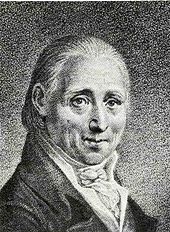Johann Baptist Wanhal
(May 12, 1739 – August 20, 1813 /74세)
An important Czech classical music composer.
He was born in Nechanice, Bohemia, and died in died inVienna. His music was well respected by Mozart, Haydn and Beethoven. He was an instrumental performer as well.
Violin Concerto in B-flat major, Weinmann IIb:Bb1
00:00 I. Allegro moderato
08:33 II. Adagio
14:10 III. Allegro
Violin : Takako Nishizaki
Cologne Chamber Orhcestra / Helmut Müller-Brühl
„Vaňhal's story has all the ingredients for a great musical drama: escape from bondage, early success dashed by sudden personal crisis, and a remarkable re-birth won through faith, talent and strength of character.
Vaňhal was born in bondage to the family Schaffgotsch in the town of Nechanice, in the Hradec Kralové area of Bohemia, today's Czech Republic. There his favorite teacher, Anton Erban, taught him to play the organ. Much of the first twenty years of his life was spent in nearby towns where he was trained to sing and to play string and wind instruments.
At the age of 13 Vaňhal became organist in Opocžno (Opočno). He later became choir director in Hniewczowes (Hněvčeves). Here he met Mathias Nowak, an outstanding violinist who trained him to be a virtuoso violinist and to write concertos. With the help of the Countess Schaffgotsch Vaňhal moved to Vienna in 1760-61. A brilliant and attractive young man he immediately flourished: in less than ten years he composed at least 34 symphonies and was recognized as one of the most important symphony composers of the time. In 1769 Baron I. W. Riesch of Dresden, who visited Vienna in search of a suitable Kapellmeister, was so impressed with the young Vaňhal that he financed an extended stay in Italy where the young novice could socialize with and learn from the best composers and experience the atmosphere of the great aristocratic courts. However, when he returned to Vienna after more than a year of luxurious living and traveling in Italy, Vaňhal declined the Kapellmeister position. There is no record of his reason for having done so, but it was alleged that he went mad and burned some of his compositions and never fully recovered his creative powers.
In the late 1770s, in response to the changing musical tastes of the Viennese public he began to cultivate the unique opportunities offered by the fledgling Viennese music publishing industry; thereby he could control the character and dispersal of his works. Viennese publishers subsequently issued more than 270 prints of his music. At this time the focus of Vaňhal's composing shifted away from the nobility, fewer of whom could afford to support an orchestra, and more toward the public (whose interest in keyboard music was rapidly rising).
How to assess his influence? His role as a teacher in Vienna is acknowledged by many. His most famous student was Ignaz Pleyel, who eventually became an adored composer and editor.
In conclusion, Vaňhal/Wanhal was one of the leading composers of the era of Classicism and the earliest stages of Romanticism. His compositions were performed throughout the world and numerous printed editions of his works appeared in his lifetime. Boldly original and possessed of formidable powers of invention, Vaňhal was highly regarded by his professional colleagues, including Haydn and Mozart both of whom performed his works and on one famous occasion joined with him and Dittersdorf to form the most distinguished string quartet in the history of music!” (By Paul Bryan, Professor Emeritus Duke University (USA) and author of Wanhal's symphonies catalogue)
'♣ 음악 감상실 ♣ > - 클래식(전곡)' 카테고리의 다른 글
| Hummel - Variations over a Russian Song, Op. 97 (1822) (0) | 2020.12.04 |
|---|---|
| Johann Baptist Vanhal (Wanhal): Piano Concerto in C Major, C4 (0) | 2020.12.03 |
| Johann Michael Haydn - Violin Concerto in B-flat major, P. 53 (0) | 2020.12.02 |
| Karl Goldmark - Violin Concerto in A minor, Op.28 (0) | 2020.11.27 |
| Woldemar Bargiel - Piano Trio 3, 2, 1번 (0) | 2020.11.22 |
